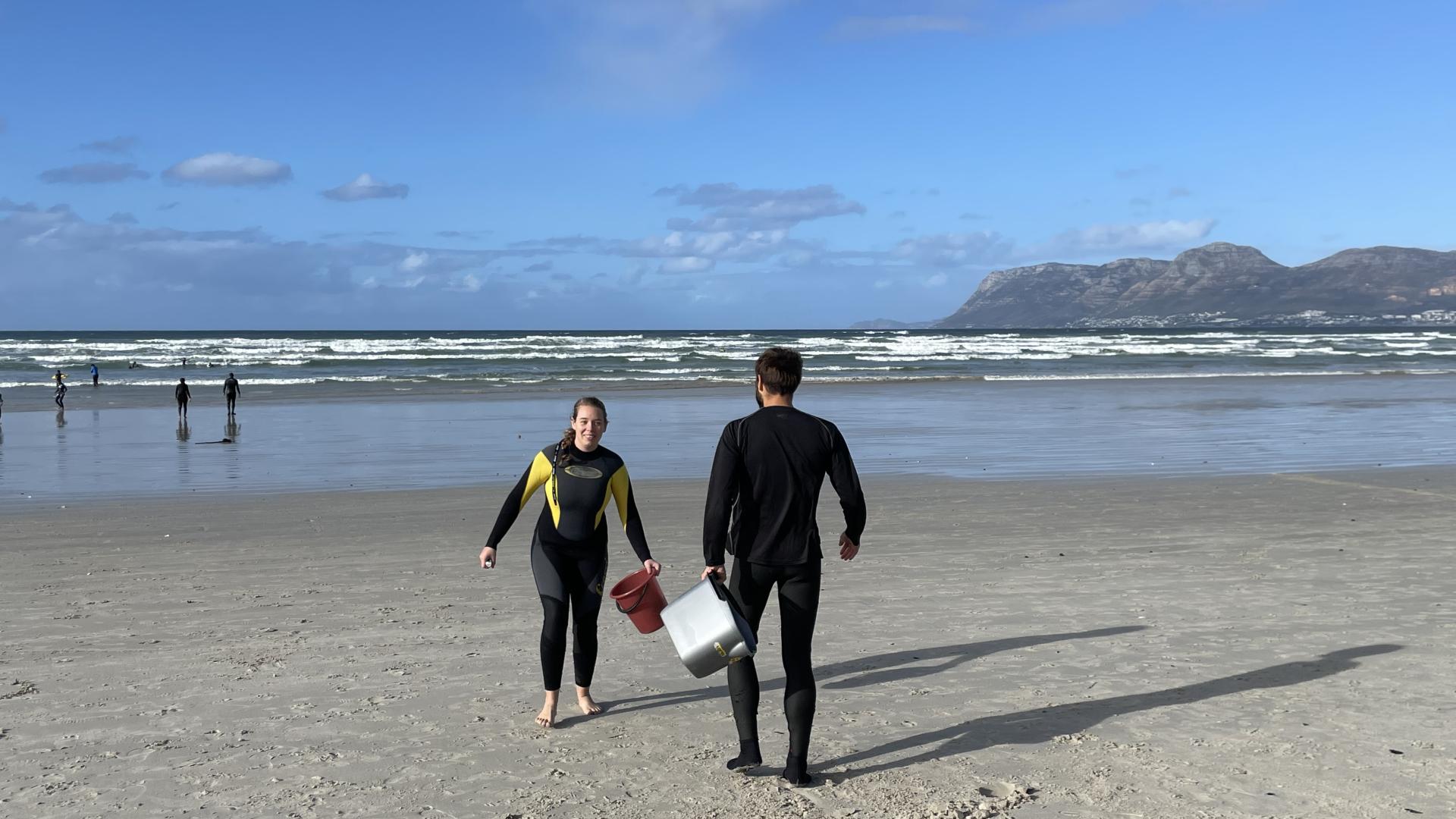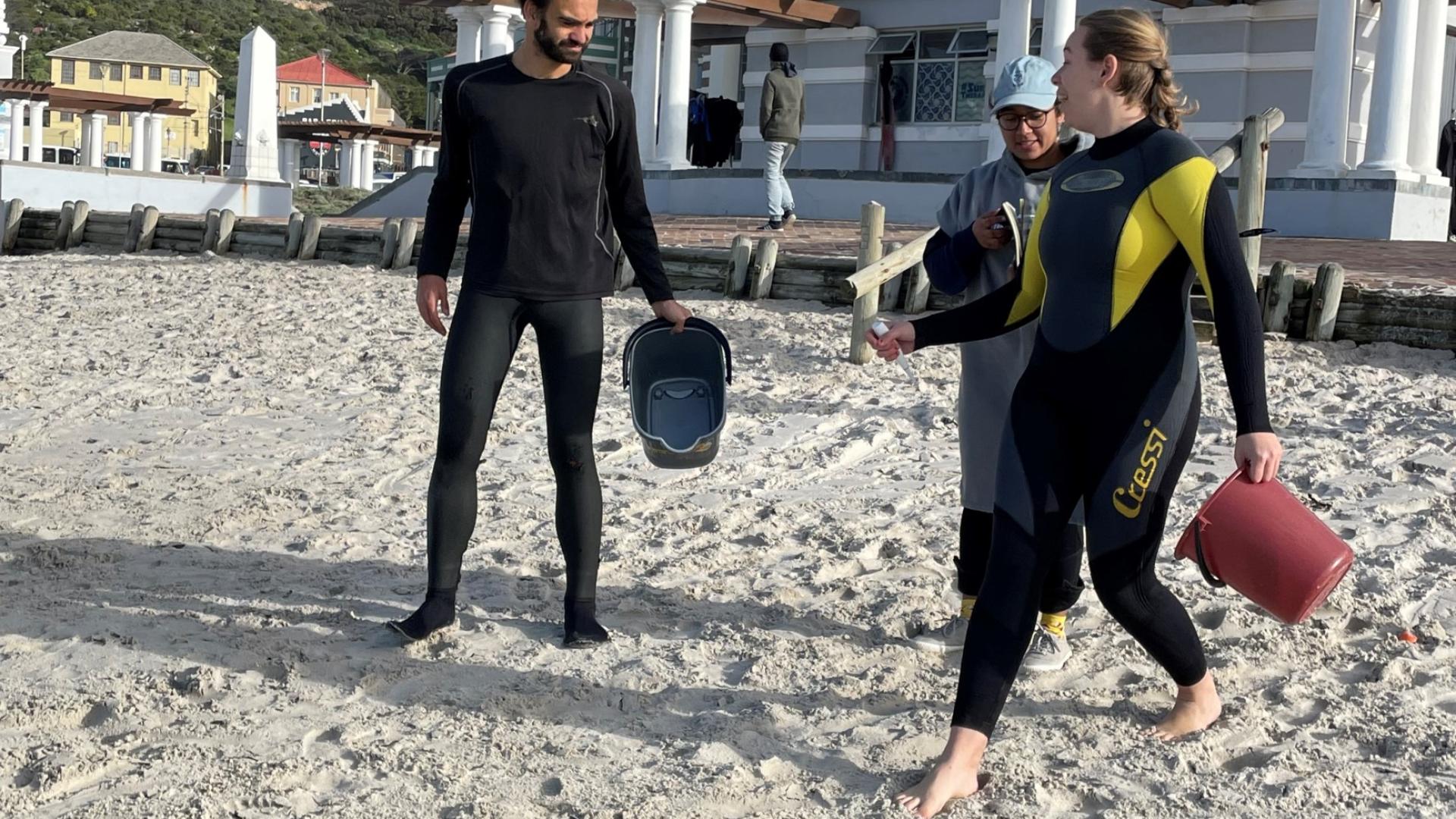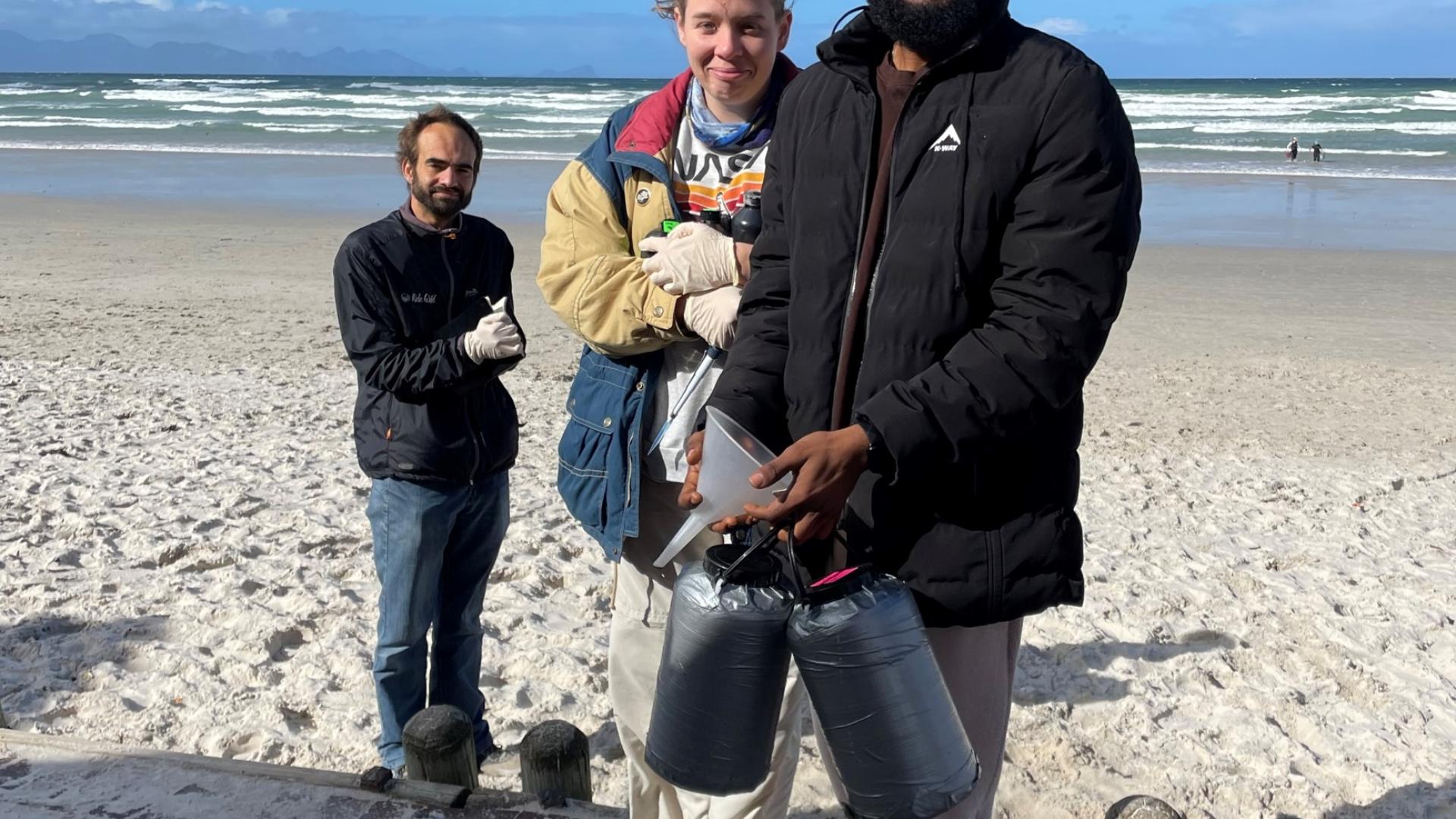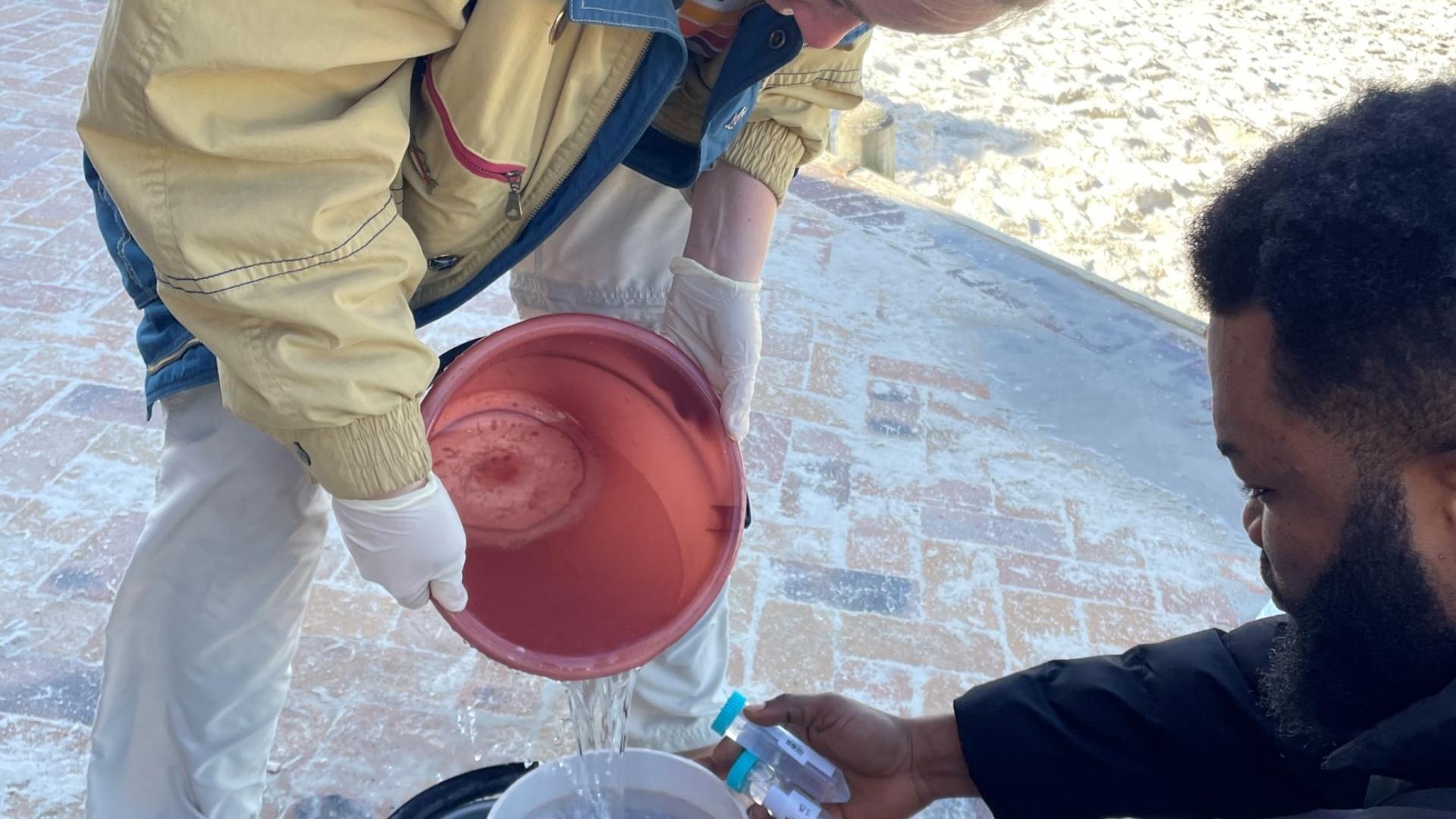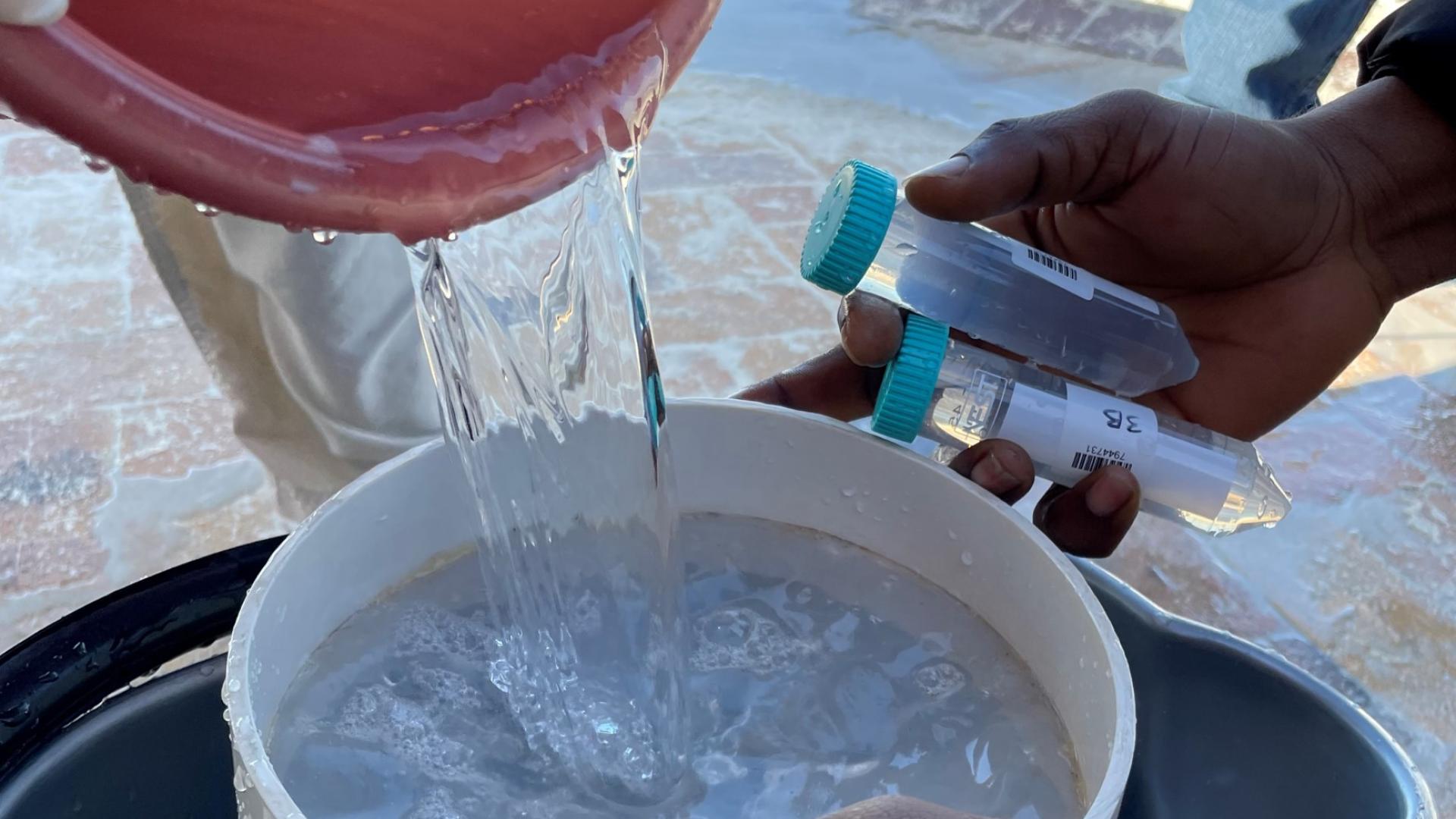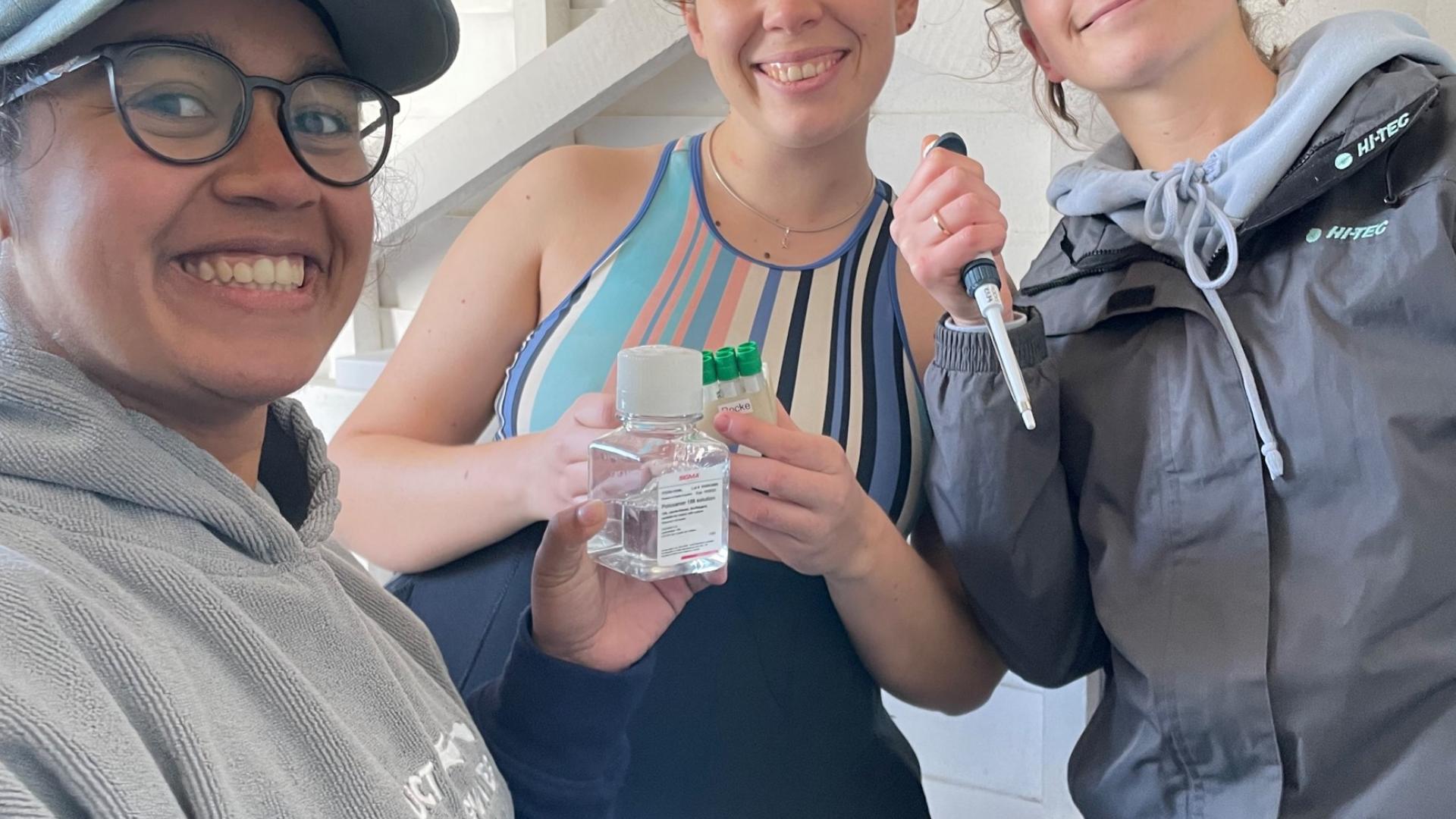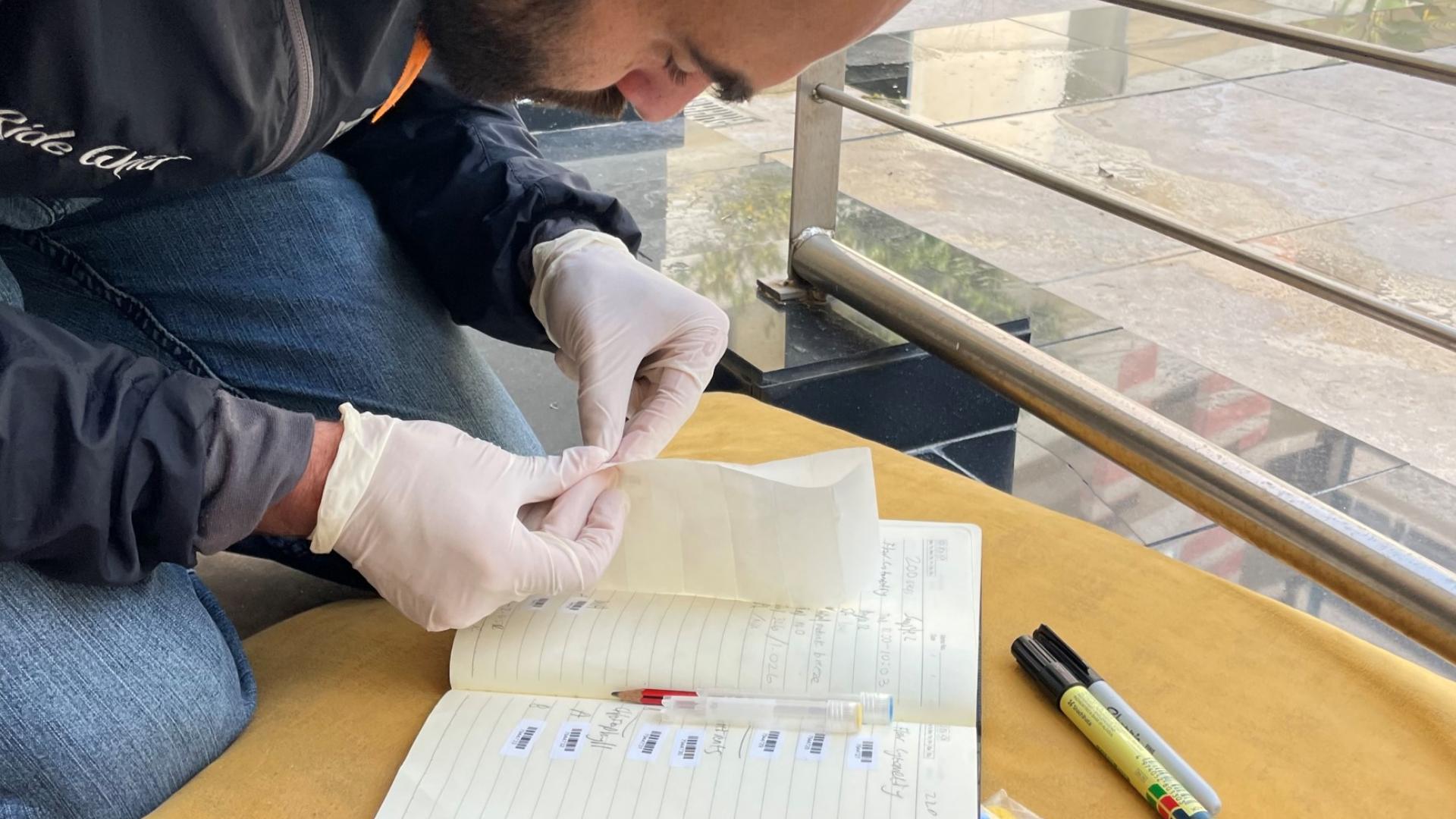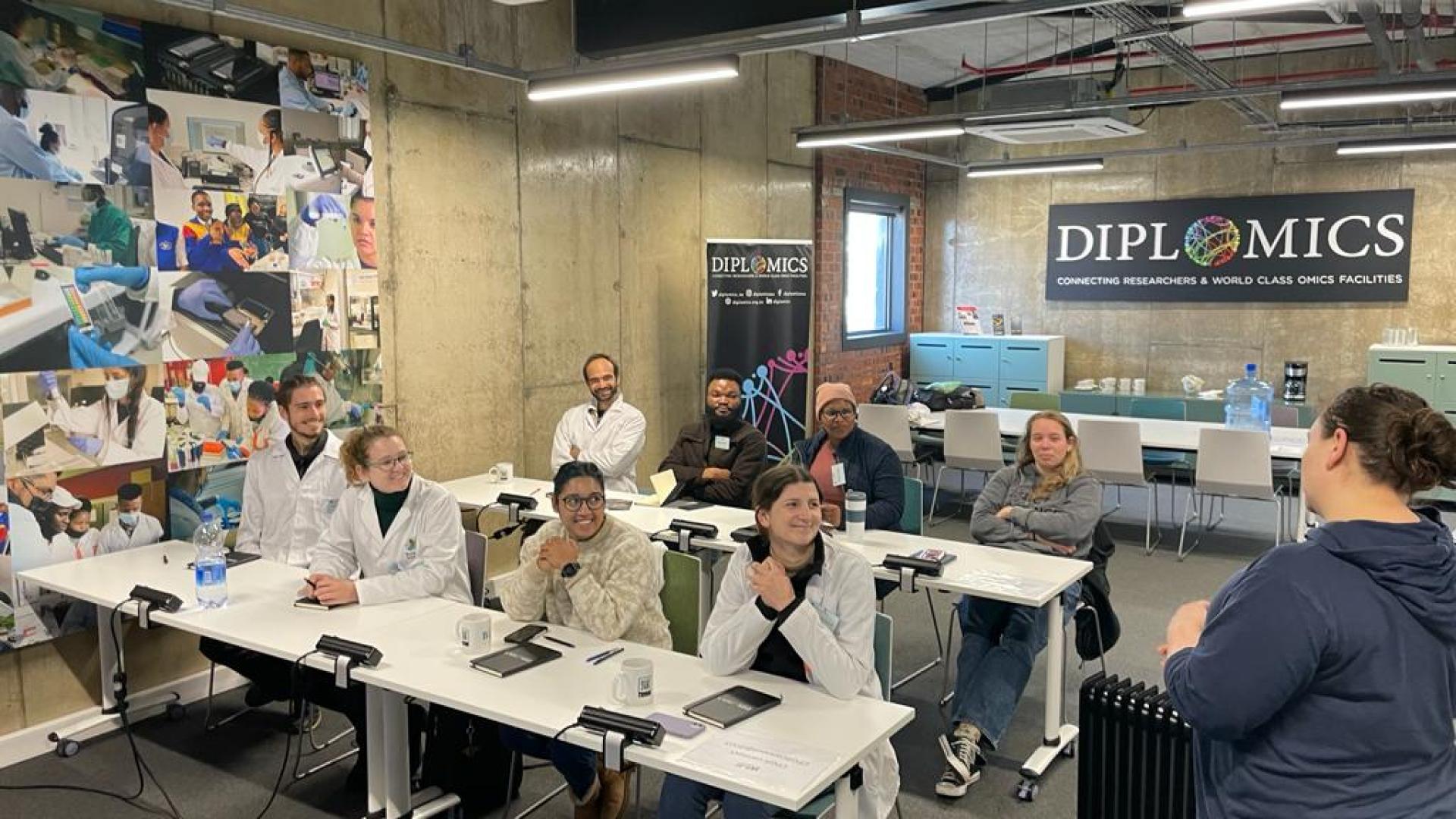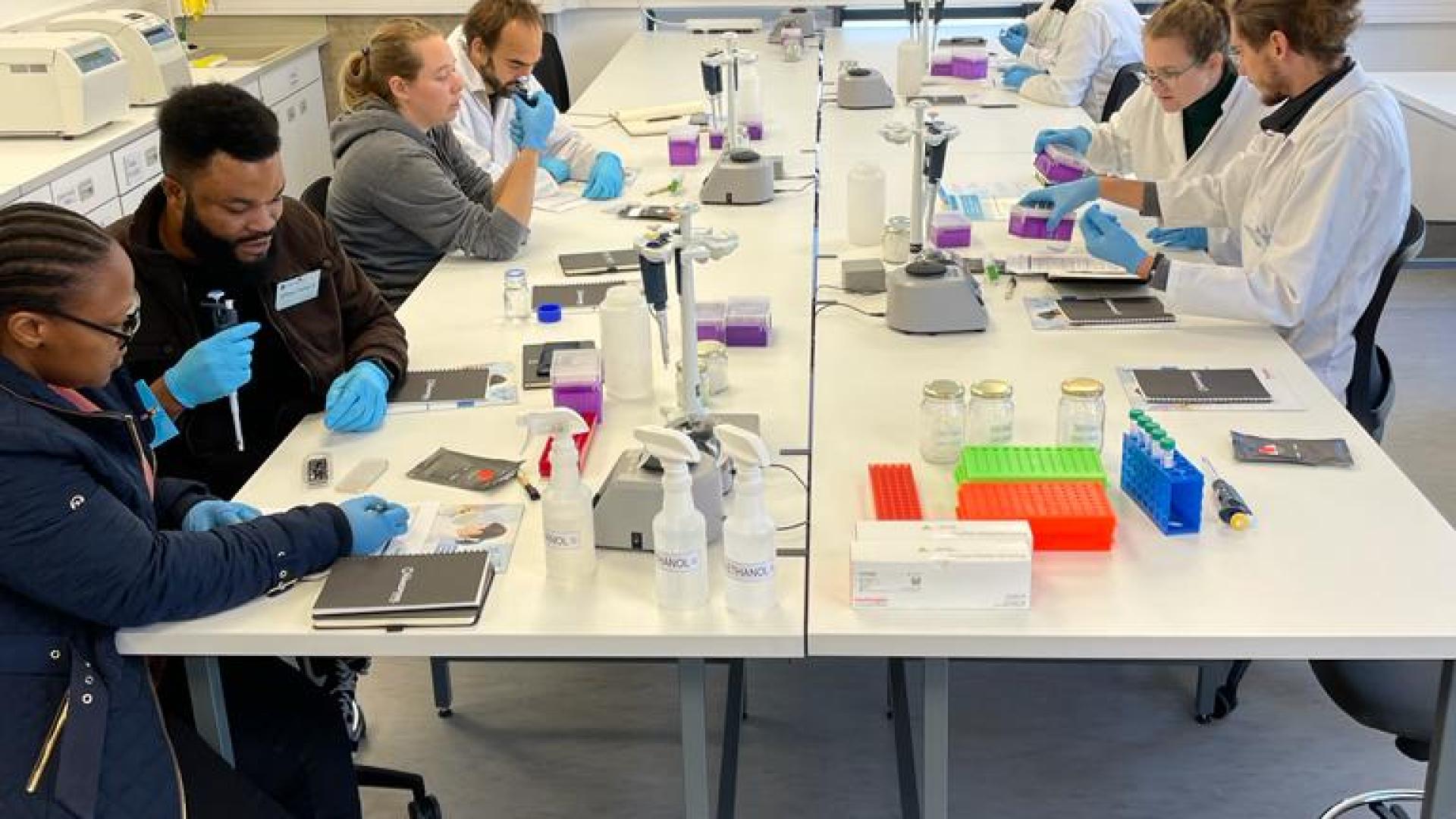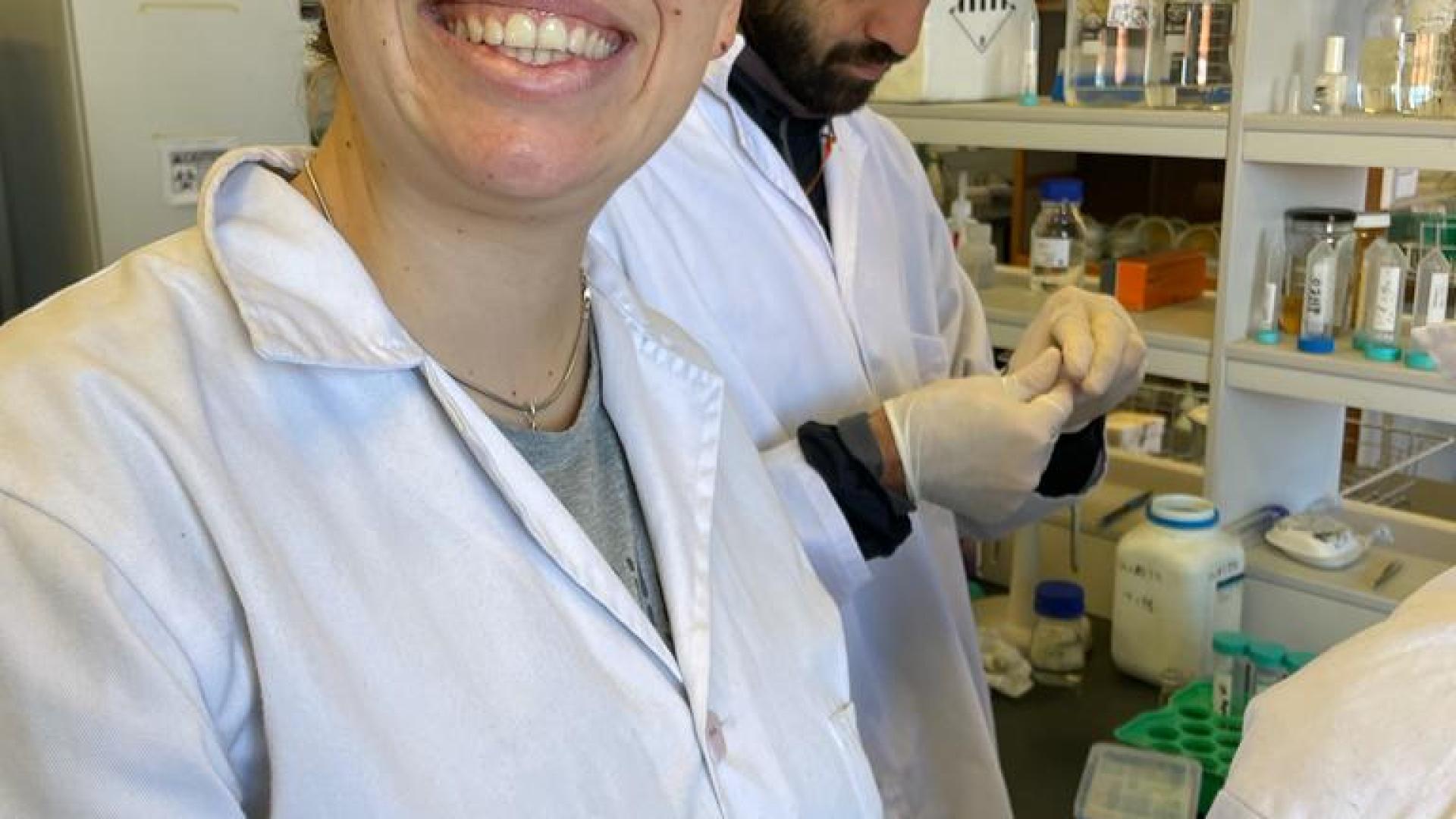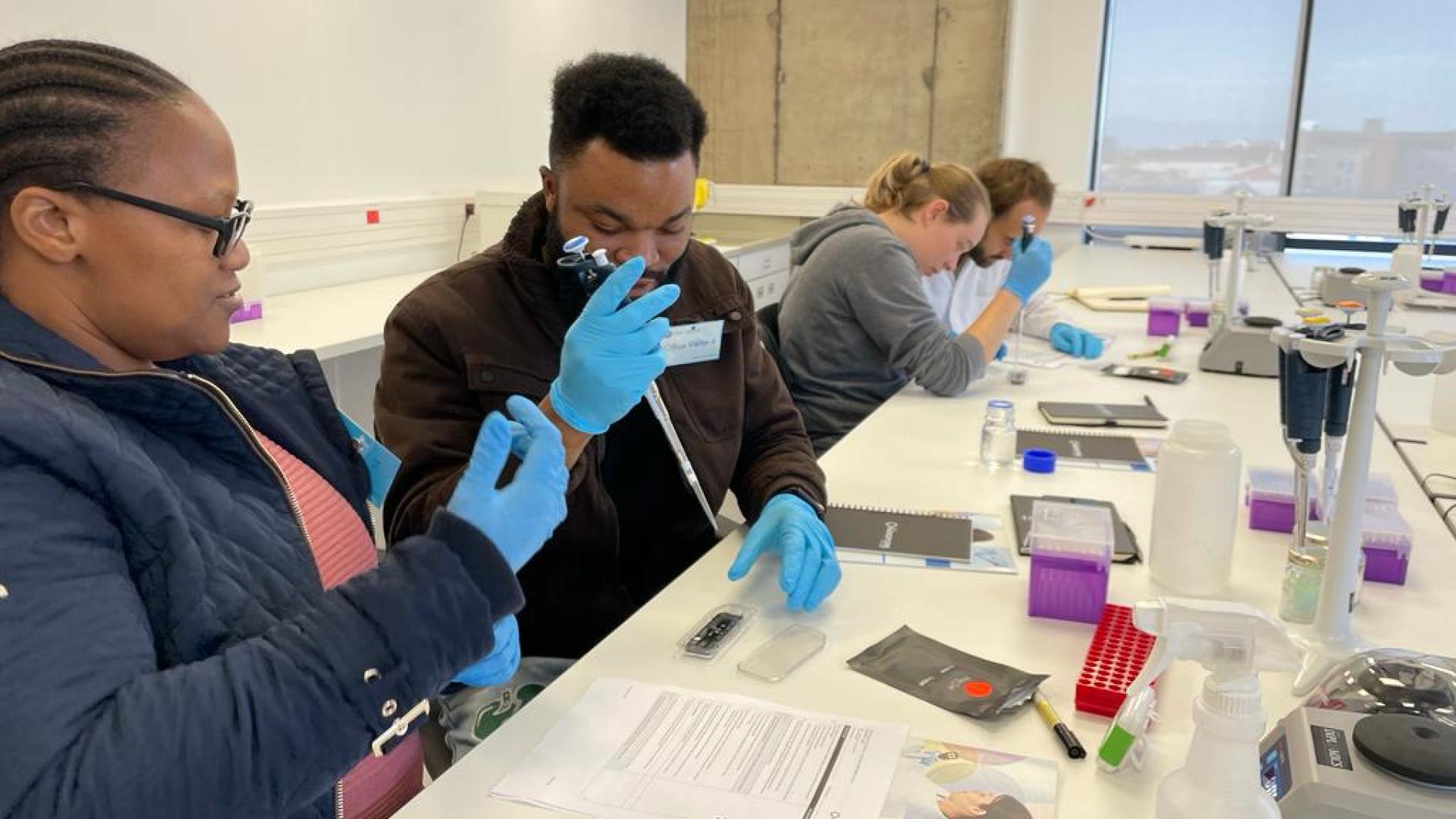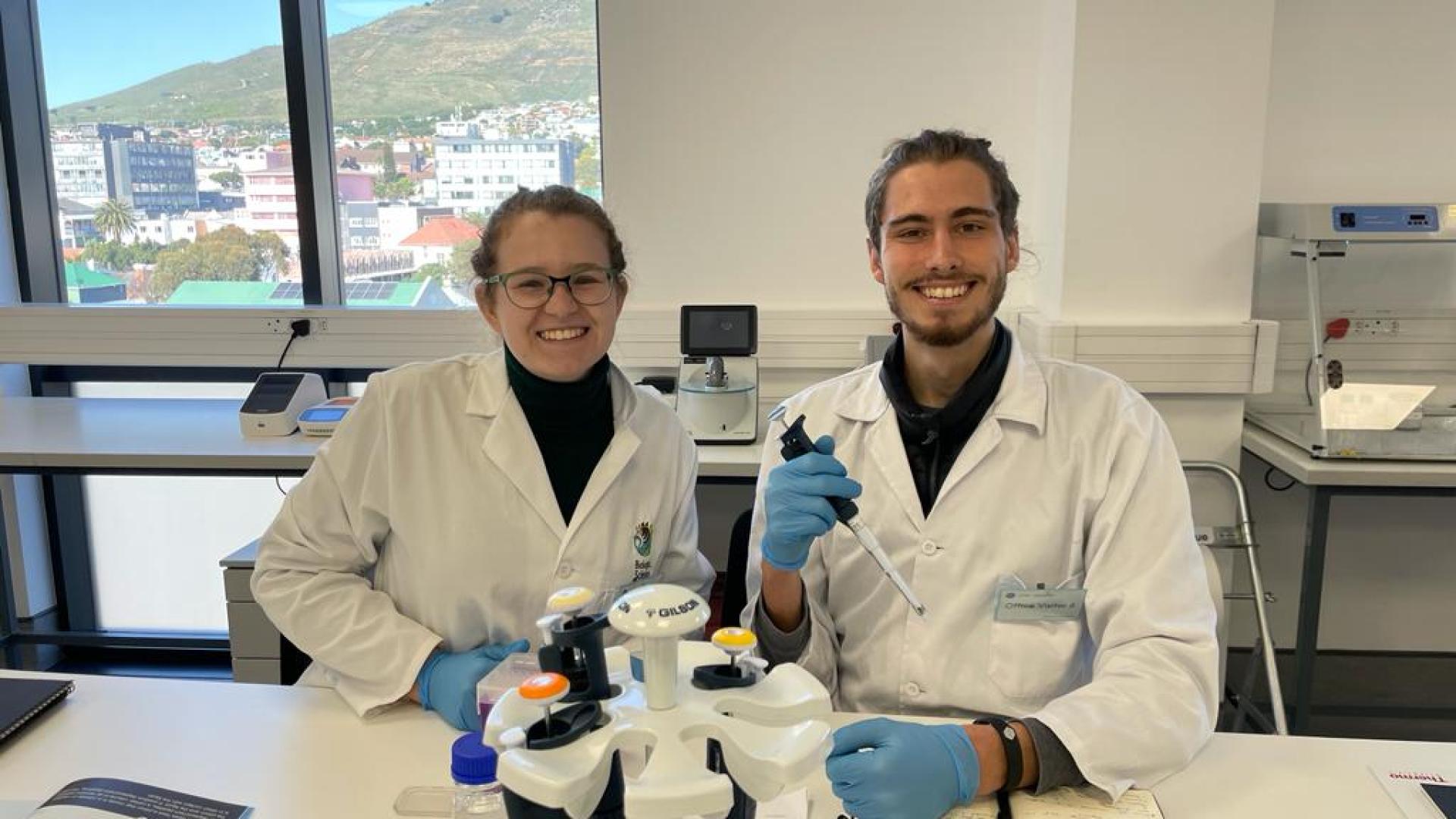Marine Microbiology: From DNA samples to sequences
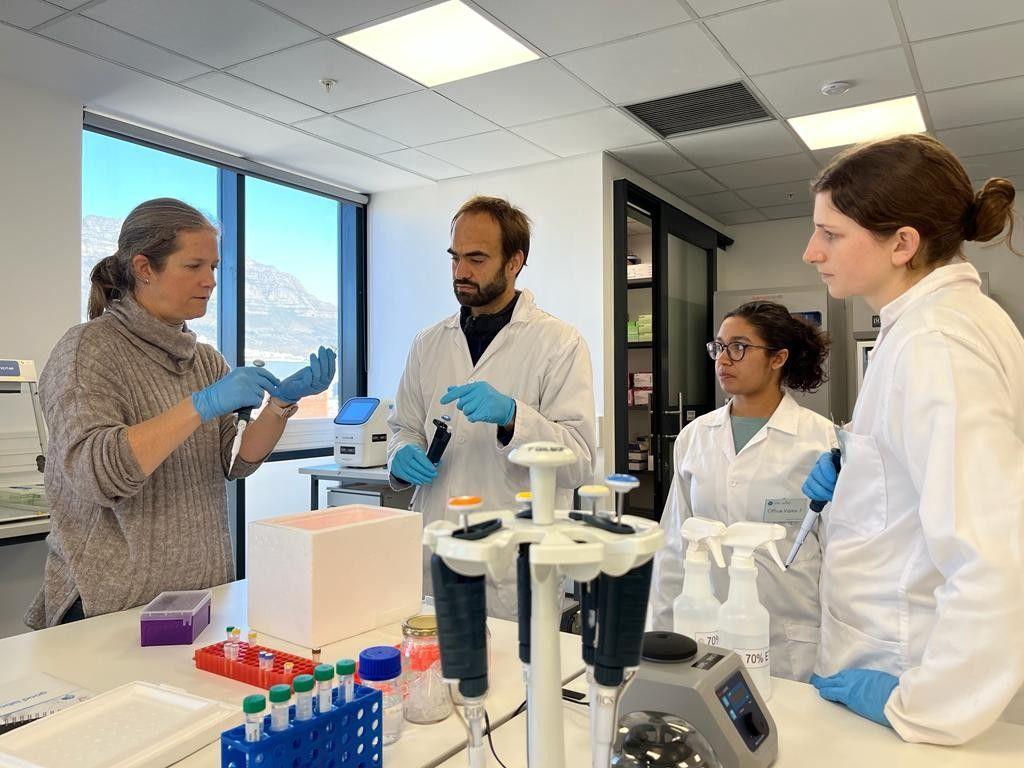
This year, the Applied Ocean Science (AOS) Masters students participated in a Marine Microbiology module, providing them with exposure to a diverse range of new techniques. The primary focus was to gain valuable insights into the vast diversity of microbes inhabiting the marine environment and their roles in shaping nutrient and chemical dynamics within our precious marine ecosystem.
After a series of introduction lectures, the students eagerly embarked on a sampling expedition to collect surf zone diatoms from the renowned Surfers Corner in Muizenberg, Cape Town. The objective was to study the genetic diversity of these diatoms, understand their interactions with associated microbes, and explore how they are influenced by various physical and chemical factors.
Familiar faces around Muizenberg may be accustomed to the occasional appearance of 'brown' water spots, often misconceived as pollution. However, we now know that these spots are actually a natural algae bloom. Despite this discovery, the trigger mechanisms behind these blooms remain a mystery.
On a bright Wednesday morning in July 2023, the team set out early to meticulously collect and filter samples. The subsequent days were dedicated to the laborious yet rewarding task of extracting and purifying DNA from these collected samples. The AOS students were joined by a couple of Emma's MSc students, Babajide Bankole and Shani Fourie.
The second week of the course brought the students to DIPLOMICS, a facility hosted by CPGR in Woodstock, Cape Town, where they had the privilege of utilizing a state-of-the-art training lab. Within DIPLOMICS' cutting-edge facilities, the students had the opportunity to prepare their DNA samples for sequencing on a remarkable third-generation sequencer known as the MInION. Remarkably compact, resembling a large USB key, the MinION is designed for real-time, long-read DNA sequencing, making it ideally suited for field research.
A crucial element of the course was the comprehensive crash course in bioinformatics. Equipped with this essential skillset, the students emerged from this module with the proficiency to sample, sequence, and analyze DNA sequencing data effectively. These newly acquired skills are not only invaluable but also transferable, aligning perfectly with the demands of today's workforce.
